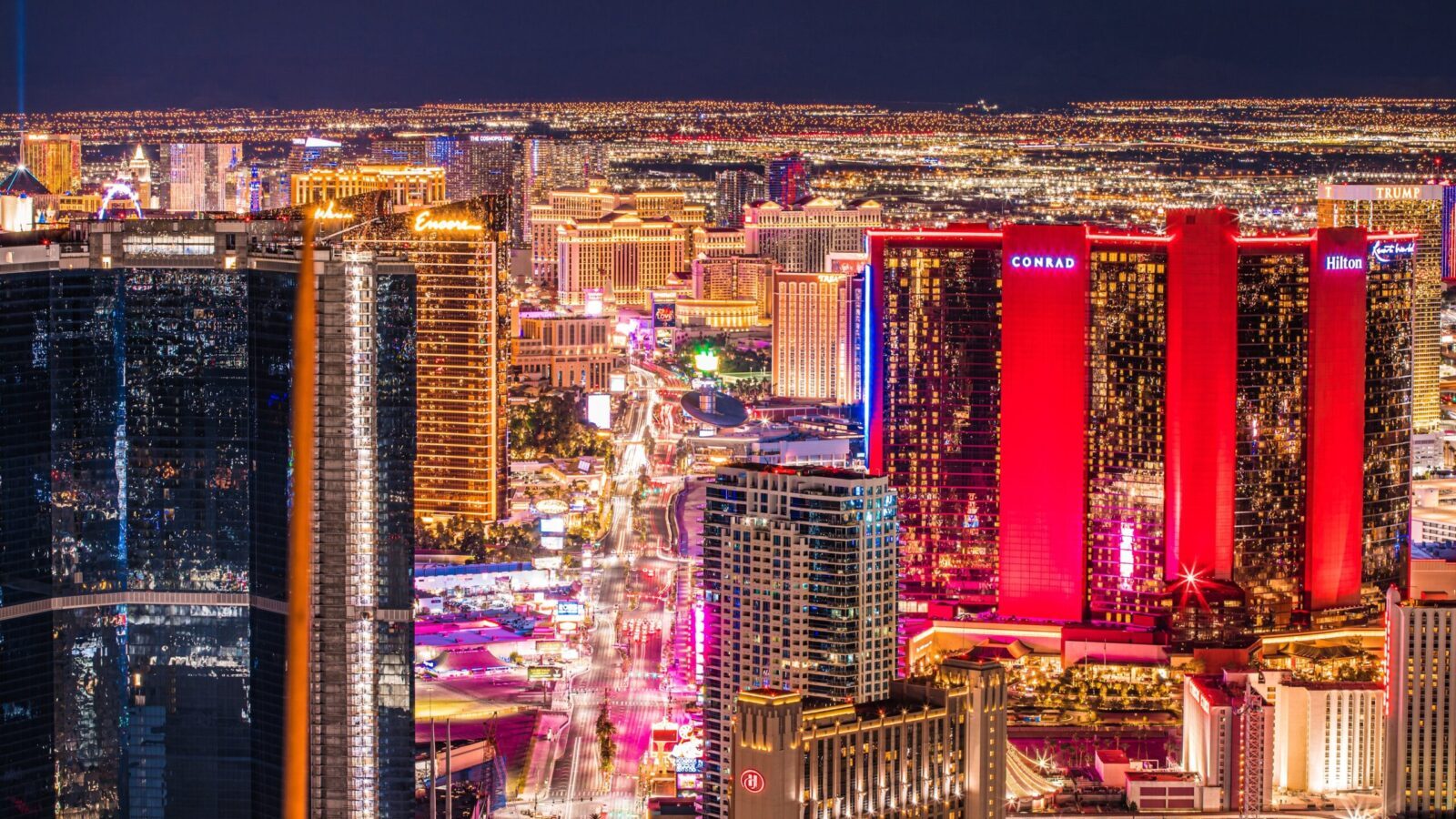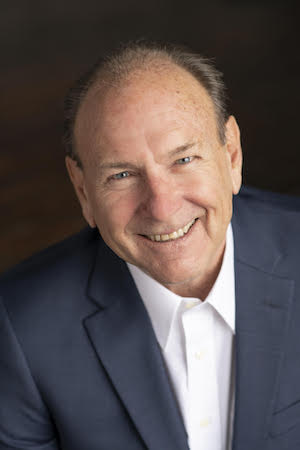Schuetz: A Lengthy Rant Concerning Last Week’s Nevada Gaming Commission Meeting
Regulatory shortcomings were on full display at meeting that saw Resorts World accept its fine
18 min

“Nice, Nice, Very Nice. So Many People in the Same Device.”
— Kurt Vonnegut, Cat’s Cradle

Had the ancient Greek philosopher Diogenes the Cynic, known for ironically carrying a lit lantern during the light of day in search of an honest man, drifted through the Nevada Gaming Commission meeting on March 27, his work would have been done early. The first speaker of the day was a gentleman named R.J. Cipriani, a.k.a. “Robinhood702,” who used the opportunity offered to the public to speak for three minutes before any cases were presented.
It appears that Mr. Cipriani has been speaking truth for some time, and no one seems to be listening or caring. In their very tight circle, it has been easier and more convenient for the Nevada regulators and the industry to ignore it all.
It is tough to know where to start with all of this.
The mob
One of the most interesting details of the commission meeting was the change from the original complaint by the Nevada Gaming Control Board against Resorts World Las Vegas to the amended complaint, which was the document of reference for an agenda item of this hearing. The amended document was scrubbed of references to “organized crime.” The original document discusses in Count 10 that casino customer Edwin Ting is described as having “ties to organized crime.” In the amended complaint, there is no such discussion. Also, Count 12 of the original complaint discusses where Resorts customers “with a history of ties to organized crime” were being welcomed with gifts, comps, and discounts. Again, this is not found in the amended complaint.
Had the language of ties to organized crime been left in the meeting-relevant document, it could have been a much more damning complaint for Resorts World and made the Nevada Gaming Control Board look very bad for having a situation where organized crime was being embraced in one of the largest casinos in Nevada.
It might prove interesting if the NGCB would provide a detailed explanation as to how it screwed up so badly with the original complaint. For the board to publish a document accusing one of its largest operators in the state of being involved with organized criminals and then pull it back seems to be a severe case of malpractice by the three board members who signed the original without double-checking if they had the goods. It could also be interpreted as an attempt at a cover-up to protect the image of the state’s largest industry and its regulators.
The feds may have another boot to drop on this topic, for they are still in play with Resorts. I guarantee the feds know who Edwin Ting (a.k.a. Eddie the Indicted) is, and they may want clarity about the circumstances of him and others being players at Resorts World casino, as the first complaint discusses. If he was a known player who played large, that could bring down the wrath of the feds on Resorts. That will also be a terrible look for the regulatory entities in the state, where the feds would again give the appearance that they know more about what is going on in Nevada casinos than the Nevada regulators do.
As an aside, others believe that Ting is involved in organized crime. See here, here, here, here, and here. The question then becomes, was he playing big at Resorts and/or traveling with a group that was playing big? Nevada is apparently saying no, but that may be tested.
A curious cast
During this commission meeting last Thursday, there was also a strangeness concerning the connections between some of the major characters within the room.
Jim Murren sat in the first row with his new Resorts World Las Vegas Board colleagues. Murren was the chairman and CEO of MGM Resorts when the largest mass shooting in U.S. history took place during the Route 91 Music Festival. The shooter fired into the crowd from within the Mandalay Bay Resort, a property owned by MGM Resorts. Moreover, the festival grounds were also owned by MGM Resorts. While Murren led the company, MGM sued the victims of the shooting and claimed that MGM had no liability of any kind, a notion that was not well received.
The chairperson of the commission meeting was Jennifer Togliatti. Ms. Togliatti’s father was the vice president of security, surveillance, and safety at Mandalay Bay when the shooting took place. Moreover, the shooter had been able to assemble a massive stockpile of weapons and ammunition within his suite for several days before shooting at the concert attendees and others from his Mandalay Bay suite.
Commissioner Togliatti was also one of the two mediators for the settlement agreement between the MGM and the victims. A group of plaintiffs complained that they were unaware of the situation of her relationship with the executive responsible for the security of the resort, where the shooter murdered over 60 people and injured many more.
Nevada often appears to be a very small town.
Let’s talk about discipline
In the press coverage of the meeting, it has often been mentioned that Resorts’ $10.5 million fine was the second-largest fine in the state, second only to the $20 million paid by Wynn Resorts for Steve Wynn’s apparent long-term zipper issues and the cover-up of that reality by Wynn executives.
That is somewhat misleading, for in September 2024, Wynn Las Vegas “forfeited” $130 million to “settle criminal allegations that it conspired with unlicensed money transmitting businesses worldwide.” This settlement was brought on by the U.S. Attorney’s Office for the Southern District of California. The company stated this was not a fine and did not involve money laundering. The press release provided by the U.S. Attorney’s Office seems to say that it was money laundering. The fine versus forfeiture issue parsing is that forfeiture relates to funds that could be attributed to a crime. What matters is that Wynn sent off a check for over $130 million to settle criminal allegations against the company. Trying to sugarcoat the packaging of that is disingenuous.
It is also important to note that the Nevada regulatory authorities were apparently unaware of this criminal activity.
At the meeting on March 27, Resorts World Las Vegas accepted the fine and other conditions in the settlement before the commissioners, but Resorts did not accept any responsibility. It seems weird that a regulator would approve a settlement where Resorts accepted no responsibility for the events that were chronicled to have occurred, especially if they had read the complaint. This gives the impression that the regulator will agree to a silly statement to protect the industry, which gives the impression that the regulatory agency has been captured by the industry.
I suggest that anyone who believes that Resorts had no responsibility for the events that took place in its casino is a fool. I also believe that every commissioner there thought Resorts was responsible for the problems. One wonders why they would approve something that they did not believe.
The size of the fine is also curious. From reading the complaint, it appears that the Resorts operation made money from the actions listed even after netting out the $10.5 million fine. The regulators in Nevada may not want to make it profitable for firms to ignore commonly accepted laws, regulations, and controls. This is a teachable moment for the commissioners, who seem cool with the notion that crime can pay. They need to fix that mindset.
Mr. Sibella and Mr. Hood
Does it seem strange to anyone else that Scott Sibella held key positions in two unrelated companies involved with Nevada’s biggest casino money laundering failures involving illegal bookies? Given that reality, it seems weird that the Nevada regulators are okay with him returning to the industry in 2028.
It will be interesting to see if the feds have anything to add, for they have yet to play all their cards for the Resorts World scene.
Cipriani, or Robinhood702, is an interesting character who showed up to make a public comment at the onset of the meeting. He chronicled a history of attempting to communicate with people and entities like Murren, the Nevada Gaming Control Board, the commission, then-Sheriff Joe Lombardo (now governor), Genting Chairman K.T. Lim, and so on. It appears he has also been meticulous in maintaining the receipts.
Some of Cipriani’s emails and communications detailing curious behavior at the MGM Grand and Resorts World Las Vegas properties seemed to be later proven to contain real facts about what was going wrong in those environments, but the primary response to those communications was basically crickets from the different individuals and entities.
According to Cipriani’s comments, because he felt marginalized and disrespected by almost all of the people with whom he was trying to converse, he then opted to become a source providing information to entities within the federal government. One does note that entities from the federal government were very engaged in investigations of MGM and Resorts World. It may be that someone was listening.
The federal investigations concerning MGM found substantial wrongdoing when Jim Murren ran the company. Those findings damaged the company’s brand, cost it money, and damaged some careers. We will have to wait and see what the federal government says about what was happening at Resorts World Las Vegas. That might be a considerable boot about to drop.
The point is that many significant stories involving fines, forfeitures, and executives needing to leave the industry were not discovered by the state’s regulatory entities but were attributed to reporters from entities such as the Nevada Current, The Wall Street Journal, and The Nevada Independent. Some of the reporters holding the regulators’ feet to the fire in Nevada are Alexandra Berzon, Kate O’Keefe, Dana Gentry, John L. Smith, Elizabeth Bernstein, and Chris Kirkham.
It would also be foolish to deny that Mr. Cipriani opened some federal eyes to the reality of the MGM situation. The press and the people assisting the federal government, such as Cipriani, have helped keep Nevada casinos in line much more than the regulatory entities. Nevada should remember that before it starts blathering about being anything approaching a gold-standard regulatory effort.
Murren an odd choice for chair
It seems rather curious that Murren would be selected to chair a board to help navigate a casino company through a money laundering breakdown involving illegal bookies when the last casino company he ran had an enormous money laundering scandal involving illegal bookies. You cannot make this stuff up.
MGM Grand agreed to a non-prosecutorial agreement relating to activities that occurred when Murren was the chairman and CEO of MGM Resorts. The fine was over $6.5 million, with $500,000 traceable to the violation. The company also agreed to spend substantial sums to improve its compliance efforts, which were considered inadequate under his tenure.
Mr. Murren also currently chairs the General Commercial Gaming Regulatory Authority (GCCGR) for the United Arab Emirates. On Oct. 4, 2024, Wynn Resorts announced that it had received the first casino operator license granted to its Marjan Island Resort, located on Al Marjan Island, Ras Al Khaimah, UAE. As an aside, Ras Al Khaimah means the head of the tent in Arabic. The integrated hotel complex, initially anticipated to cost $3.9 billion, is now estimated to cost $5.1 billion. It will be approximately a one-hour drive from Dubai.
Ras Al Khaimah is home to many incredible yachts, such as that of Andrey Melnichenko, whose 385-foot, $300 million luxury yacht has been known to hide in the area, arguably to avoid being seized. Melnichenko is a Russian oligarch who was with Vladimir Putin the day Russia invaded Ukraine, and the European Union has imposed sanctions on his assets. The UAE is known for providing sanctuary for Russian money and assets to protect them from seizure from Western nations. The UAE is also on the European Union grey list for anti-money laundering and terrorist financing risks.
The timing of the Wynn announcement of being granted the first casino by Murren’s regulatory agency was interesting in that it was less than a month after the U.S. Attorney’s Office announced that Wynn Las Vegas had agreed to forfeit $130 million to settle criminal investigations for conspiring to work with unlicensed money-transferring services around the world to benefit the casino.
What’s also weird is that Murren is the head of the UAE regulatory authority, which has licensed Wynn, and is also the chair of Resorts World Las Vegas. Wynn Las Vegas is in the neighborhood of Resorts World Las Vegas, and the companies aggressively compete against one another.
This makes as much ethical sense as if Nevada Gaming Commission Chair Jennifer Togliatti was in her current position and also the chairperson of the board of a casino company in Atlantic City, competing with other Nevada firms she oversees. I cannot understand how Murren can be regulating a casino in one role for a company he is competing with in another.
I also found it curious that University of Nevada President Brian Sandoval was on the board with Murren. From 2011 to 2019, Sandoval was Nevada’s governor. His last term ended on January 7, 2019. A newspaper article published at 5:30 a.m. the next day noted that MGM Resorts had hired Sandoval as president of global gaming development.
I have always wondered about the timing of this announcement. This is a considerable job, and the deal points must have been reasonably complex and involved. It seems evident that this was not hashed out from when the new governor was sworn in on January 7 after 11:50 a.m. so that it could be published in an article in Las Vegas at 5:30 the next morning. The most logical explanation seems to be that MGM and Sandoval had been negotiating his employment while Sandoval was governor. One would also guess that Murren would be involved in those discussions.
It seems inappropriate that the governor of Nevada would negotiate for a job with a gaming company while he was governor. Mr. Murren should also understand that both the optics and reality of this are challenging ethically for an operator.
It is also a curious decision for a university president to become involved in overseeing a casino company troubled by money laundering and dealing with illegal bookmakers. It would be a bad look if the federal government followed up with charges that addressed the organized crime allegations found in the initial Nevada accusation and brought charges on that issue. Once again, the optics would be a bit challenging for a Nevada casino company being charged with associating with organized criminals, which has a board member who is the president of the University of Nevada. I would guess the president of Harvard would hesitate to join the board of a casino company with problematic associations of money laundering, providing gaming services to illegal bookies, and potentially dealing with organized criminals.
As an alumnus, I would prefer President Sandoval focus all his energies on getting his university ranked slightly higher than 204th nationally.
I also found it fascinating that Gerald Garner, Governor Sandoval’s chief of staff from 2012 to 2014, became employed by Resorts World as a senior executive after he quit being Sandoval’s chief of staff. He remains a senior executive for Resorts World today. It is interesting that he did not sense something was wrong based on the history provided by the complaint and his position there. That was a lot of stuff to miss for a person in his position.
The need for a casino person
I am a casino guy. I wrote keno and dealt cards and dice in Reno for Bill Harrah and others at night while attending college during the day at UNR. This was in the early 1970s. I have also been a box man, floor man, pit boss, shift boss, casino manager, VP of casino operations, executive VP of casino operations, and President and CEO. As a senior executive in Las Vegas properties, including as a CEO, I would go on the casino floor, push in, and deal on a dice game. It gave me street cred with the troops. It also let the help know I was more than just a suit. The customers also had fun as I would hustle tips for the crew, and the crews loved it when I missed a move (dice dealing is an art form).
I also had dealers I knew well in the stores where I worked, and I often got them their jobs. The fact that we knew each other was never obvious, but they would get in touch if there were something I needed to be alive to. I knew who bought the drinks when the casino employees left the property after the shift. I also spent a lot of time in surveillance and had paid spotters. I knew who was riding to work with whom, and on and on. I also spent an enormous amount of time on a casino floor.
Before I hired someone for a management position, I would walk the casino floor and visit with them to be seen. If there was someone on the floor who wanted to narc on them, I knew I would get a call or someone would whisper something to me. As I wrote above, Vegas is a small town at times. This all took me many years to learn, and some great mentors gifted me. I also got burned constantly, which does force one along the learning curve.
I mention this because I was amazed when I read the first complaint. Anybody who knows casinos could have seen that Resorts was institutionally out of control. The Three Blind Mice could have understood that the store was owned. And the coup de grâce was Mathew Bowyer’s wife being hired as his compensated rep. My god, I would not include such a scenario in a work of fiction. It would just be too outlandish. I could not stop shaking my head when I read that document. If you have spent much of your life in a casino, you would know this place was out of whack. You also would know that the bad actors had to think they were working with impunity.
I mention this because, at the hearing, I did not see any casino people. I saw a bunch of suits occupied by finance people, lawyers, hotel and resort folks, ex-judges, and others, but I did not see anyone who could walk into a casino and gain an ounce of respect by pushing into a busy dice game. That includes the new Resorts Las Vegas board. Maybe I missed something here, but I found it funny that a bunch of folks who do not have any personal connection with the reality of the casino proper can be expected to be able to fix a casino that was out of control. It reminded me of that joke of the consultant who knew of 103 ways to make love and was still a virgin.
Let me give you some advice: If you have a heart problem and go in for heart surgery, get someone who has successfully operated on a lot of hearts to handle the operation — and if you are going to try and gain control over a very wayward casino, get someone who has dug a ton of felt out from under their fingernails.
Resorts’ immediate crisis is not in food and beverage, rooms, and the like (although those are huge issues for that resort). The casino is the wayward child that needs to behave and be profitable. You need to find someone who can navigate and survive in that pig slop, and you need that person on board right now. I did not see that person at the hearing or hear a name mentioned in that capacity.
The commission
The Nevada Gaming Commission is the adjudicatory body for the Nevada regulatory process. I suggest that, at times, it does not act like an adjudicatory body and has an amateur hour feel about it. Several points:
1) The commission’s recusal process needs work. When Commissioner Abbi Silver noted that she had a long personal friendship with Scott Sibella, that can be interpreted as an endorsement — that is, as testimony. She could have also truthfully stated that she has had a long association with a felon who has pleaded guilty to a casino crime, paid a fine, and has been banned from receiving a gaming license in Nevada. This, too, could be seen as testimony, true as it is, which could influence the other commissioners. That would be inappropriate.
Moreover, she should be aware that a key employee in Nevada can lose his or her license for associating with a felon who has committed a gaming crime. That makes sense. It would be a bad look for key employees to hang out with a felon who had been involved in a casino crime. It could also be a bad look if Commissioner Silver’s comment were interpreted as implying she is still associating with Mr. Sibella. Gaming regulators should not be socializing with felons convicted of gaming crimes.
A recusal should be discussed with the commission’s general counsel and, if considered relevant, delivered in short form for the meeting minutes, such as having had a long-term friendship with a possible subject of the hearing that a reasonable person may interpret as a conflict. Then, the person should leave the dais and head to a back room (for facial expressions and body language are on full display from the dais, which could be considered testimony).
2) Stop the gushing. When Commissioner Brian Krolicki effused that a “dream team” was before him in the form of the new Resorts World Las Vegas board, it was inappropriate. That was not the subject of the hearing, and he should not work to provide such testimony at the hearing. Moreover, he looked foolish, justifying his statement by suggesting they had extensive Wikipedia pages. Aside from him being factually wrong, it is noted that Adolf Hitler, Charles Manson, and Jack the Ripper all have more extensive Wikipedia pages than any of this Resorts group.
It is also understood that a material issue with regulation in general, and particularly in gaming, is the revolving door where regulators move on to the industry for the big dollars. Economists argue that this is generally a characteristic of a regulatory agency captured by the industry. Regulators need to appear impartial and not appear to be fanboys.
Commissioner Krolicki also noted the “reputational risk” gaming firms potentially suffer from non-compliance issues. He neglected to mention the reputation risk the regulatory entities face due to the feds or the press continually catching things the Nevada regulators are missing. Sibella did what he did at MGM and then moved to Resorts. It was the Resorts folks that fired him. With both the MGM and Resorts situations, the impetus for the feds and the state to get involved was due to sources, as discussed by R.J. Cipriani at the onset of the meeting, by the feds, and in work by quality journalists. The Nevada regulatory entities were missing in action and only seemed to show up after the battle to shoot the wounded. And don’t underestimate how board member George Assad can quickly confuse longtime students of Nevada regulation.
As an aside, Commissioner Krolicki was the lieutenant governor during Governor Sandoval’s first term. I told you that Nevada was a small town.
3) The commission members need to lose their cell phones while on the dais. Call a recess if there is an emergency or if you need to consult with legal or something similar. Fiddling with a phone insults whoever is speaking and is unprofessional. It depreciates the commission and the process.
Epilogue
Commission Chair Togliatti continuously asked individuals seeking a gaming license what they thought of the gaming licensing process in Nevada during other licensing agenda items. I agree that it is important for her to care about the quality of the regulatory process. I believe she is sincere, and I admire her goals. However, that is not the way to gather that information.
That license will generally allow the applicant to become involved in a high-paying position, and the last thing they will do to get that “union card” is to insult or disappoint the benefactor. They should be expected to compliment and applaud the process. It is only normal and natural. I have gone through many licensing hearings in my life, and my goal has always been like that of the airplane pilot — to walk away alive and whole.
I spent over two years working on a Ph.D. dissertation in economics on chronicling the evolution of Nevada’s regulatory model during Nevada’s formative years of gaming (1945-66). I have worked in gaming worldwide, from keno writer to CEO. I have lectured on casino management and regulation at universities in different corners of the globe. I have served as an executive director of an offshore gaming regulator and been a gaming commissioner in California. I was also the gaming consultant to the governor’s office and the legislature in California. I have published extensively on gaming and its regulation, submitted over 120 gaming applications worldwide, and have never been denied a license or had an application withdrawn with prejudice.
Having said that, allow me to respond to Togliatti’s question about the quality of Nevada’s gaming regulatory efforts:
I have seen a material depreciation of the regulatory process in Nevada since A.G. Burnett left the Gaming Control Board. In my opinion, he was as good as they get, and I think having him on the Resorts World Las Vegas board was a wise decision. The incredible leadership turnover since his NGCB tenure has created something of a paper tiger that seems to like to roar about its toughness but has little idea of what it is doing. I believe that leadership is also losing the confidence of the staff.
The problem is not the men and women of the NGCB. The problem is leadership. Nevada has to start paying its regulators real money, and the governors need to begin sourcing serious people who possess character, honesty, and integrity and will serve their terms. It is that simple. Burnett left at the end of 2017. The Nevada Gaming Control Board is about to get its sixth chair since then. Nevada cannot afford to replace the chair every 14 months; that rate of leadership change is a perfect recipe to ruin a regulatory effort, and it is doing just that.
Just about the time the leader figures out his or her job, they leave. The governors need to find real talent and figure out how to keep them involved for at least a full term, at a minimum.
—
Richard Schuetz entered the gaming industry working nights as a blackjack and dice dealer while attending college and has since served in many capacities within the industry, including operations, finance, and marketing. He has held senior executive positions up to and including CEO in jurisdictions across the United States, including the gaming markets of Las Vegas, Atlantic City, Reno/Tahoe, Laughlin, Minnesota, Mississippi, and Louisiana. In addition, he has consulted and taught around the globe and served as a member of the California Gambling Control Commission and executive director of the Bermuda Casino Gaming Commission. He also publishes extensively on gaming, gaming regulation, diversity, and gaming history. Schuetz is the CEO American Bettors’ Voice, a non-profit organization dedicated to giving sports bettors a seat at the table.






